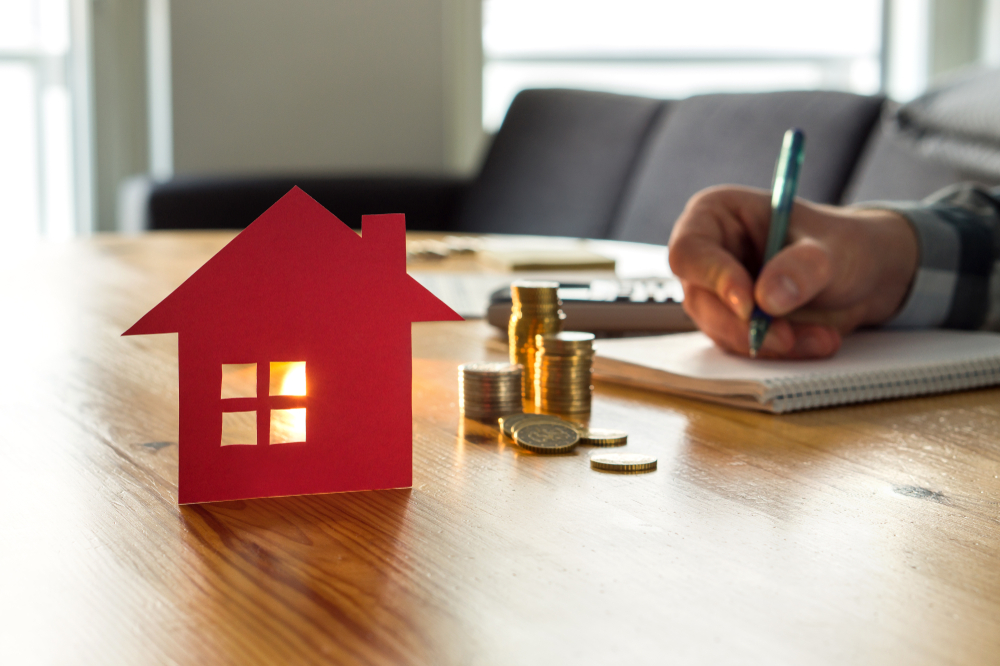Household Bills
House price growth falls for first time since 2012 as mortgage rates spike

On an annual basis, house price growth fell to -1% in May, which is the first annual decline since December 2012, according to the latest figures.
According to Halifax’s House Price Index, the annual rate of house price growth in May fell to -1% compared to 0.1% in April. The report continued that the average house price remained flat in May compared to a 0.4% growth in April. The bank said that the average UK property stands at £286,532, which is down by around £130 compared to April.
Regional and property type view
The South East reported strongest price falls at -1.6%, followed by South West at -1.4% and Greater London at -1.2%. The West Midlands was the best performing region with annual growth at 2.7%, followed by Yorkshire and the Humberside at 2.3%. Scotland and Northern Ireland both reported a fall in annual price growth, going to 1.3% and 1.5% respectively, while Wales stayed static at 1.1%.
The report continued that property prices were under most pressure among homemovers where annual growth decreased by 1.1% in May. This compared to a rise of 0.3% for first-time buyers.
It added that existing houses fell in value with an annual growth of -1.9%, but new build value continued to rise at 2.8%. The report said that the latter was the weakest rate for nearly three years.
All property types barring detached houses, which increased year-on-year by 0.4%, had annual declines, with the sharpest fall recorded for flats at -1.9%, terraced homes at -1% and semi-detached houses at -0.5%.
Higher interest rate hit budgets
Kim Kinnaird, director of Halifax Mortgages, said: “Given the effectively flat month, the annual decline largely reflects a comparison with strong house prices this time last year, as the market continued to be buoyant heading into the summer.”
She noted that property prices had fallen by around £3,000 over the last 12 months and were down from around £7,500 from their peak in August. However, prices are up £5,000 since the end of last year and £25,000 above the level of two years ago.
She added: “As expected, the brief upturn we saw in the housing market in the first quarter of this year has faded, with the impact of higher interest rates gradually feeding through to household budgets, and in particular those with fixed rate mortgage deals coming to an end.
“With consumer price inflation remaining stubbornly high, markets are pricing in several more rate rises that would take base rate above 5% for the first time since the start of 2008. Those expectations have led fixed mortgage rates to start rising again across the market.”
More mortgage pain on the way
While house prices fell, mortgages rates continue to rise and most experts agree that the pain for homeowners and homemovers is far from over.
Victoria Scholar, head of investment, interactive investor said: “This was the first time since 2012 that annual house price growth came in below zero, highlighting the strain on the UK property market from the cost-of-living crisis, rising mortgage rates, and a sluggish growth backdrop.
“Mortgage providers have been increasing their rates in response to the Bank of England’s inflation-combative rate hiking path. Halifax has confirmed that it is among the brokers increasing its prices with two-year deals currently the most popular as borrowers opt for shorter term loans instead of five-year deals pinning their hopes on a medium-term drop in interest rates.”
Sarah Coles, head of personal finance, Hargreaves Lansdown said: “This is far from over. Core inflation sent shockwaves through the mortgage market at the end of May, and we’re still feeling the effects as major lenders bump up prices. The market now expects rates to be higher for longer, which means fixed rate mortgage prices are increasing.
Meanwhile, Karen Noye, mortgage expert at Quilter, pointed to the spectre of rising unemployment, which if it picks up pace could send prices plunging.
She said: “The real canary down the mine for how fast and severe house prices will drop will be unemployment rates. At present, employment is still high and while unemployment rates have recently ticked up from very low levels it has held firm in the face of strong economic headwinds. If this was to change then we would see many more people unable to keep up with their bills causing more houses to come onto the market and prices to drop as a result.
“It appears likely that the UK housing market will continue to face challenges in the coming months. However, these effects may be somewhat mitigated if wage growth remains robust and unemployment stays low but with unexpectedly high CPI figures continuing to knock Britain’s recovery from the cost-of-living crisis off course it is anyone’s guess how things might pan out as we head into the summer and into autumn.”